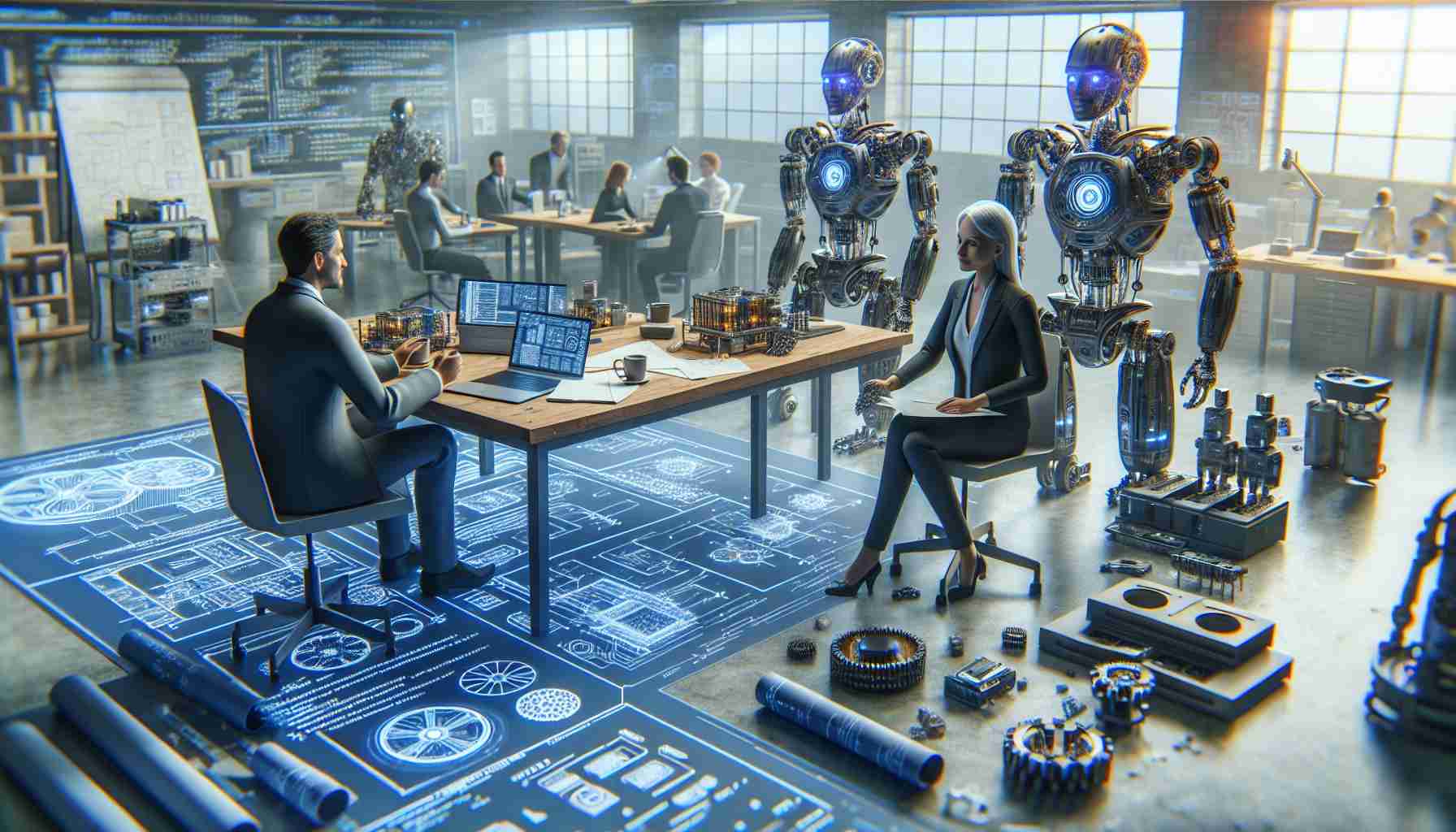Jony Ive, the former design chief of Apple, has embarked on a groundbreaking new venture in partnership with OpenAI. This collaboration aims to revolutionize the tech industry through the development of an innovative AI device. While details on the project remain scarce, it is set to push the boundaries of artificial intelligence in consumer electronics.
The meeting between Jony Ive and OpenAI CEO, Sam Altman, was arranged by Brian Chesky, the CEO of Airbnb. With funding coming directly from Ive and the Emerson Collective, the project strives to raise a staggering $1 billion by the year’s end. While currently employing just 10 individuals, the team includes key talents such as Tang Tan and Evans Hankey, both integral figures from Ive’s tenure at Apple.
Located in a sprawling 3,000-square-meter office building in San Francisco, the workspace for the project exudes innovation. The facility, acquired by Ive for $90 million, serves as the hub for creativity and technological advancement. LoveFrom, Ive’s design company, leads the charge in shaping the device’s aesthetic and functionality.
Ive and Altman envision a future where “productive AI enables the creation of cutting-edge computing devices, surpassing traditional software by tackling complex user queries with ease.” This ambitious undertaking heralds a new era in technology, where human ingenuity and artificial intelligence converge to redefine consumer electronics.
New Cutting-Edge Developments Unveiled by Jony Ive in Collaboration with OpenAI
As the collaboration between Jony Ive and OpenAI continues to make waves in the tech industry, new details have emerged that shed light on the groundbreaking project. While the initial article highlighted the broad scope of the venture, there are specific aspects that warrant further exploration.
Key Questions and Answers:
1. What sets this AI device apart from existing technologies?
Innovations in this project aim to go beyond traditional AI capabilities, focusing on advanced algorithms that prioritize intuitive user experiences and seamless integration with daily tasks.
2. How does the collaboration with OpenAI impact the future of consumer electronics?
By harnessing the power of AI, Jony Ive and OpenAI envision a future where devices can adapt and evolve alongside user needs, setting a new standard for personalized technology solutions.
Key Challenges and Controversies:
1. Privacy Concerns:
With the integration of AI into consumer electronics, questions regarding data privacy and security have surfaced, prompting discussions on how to safeguard user information effectively.
2. Ethical Implications:
As AI capabilities continue to advance, ethical considerations arise regarding the potential impact on jobs, human decision-making processes, and the overall relationship between technology and society.
Advantages and Disadvantages:
Advantages:
– Enhanced user experiences through personalized AI interactions.
– Potential for increased productivity and efficiency in daily tasks.
– Setting the stage for future technological advancements and innovation in consumer electronics.
Disadvantages:
– Concerns regarding data privacy and security vulnerabilities.
– Ethical dilemmas surrounding the use of AI in decision-making processes.
– The need for comprehensive regulations to address the evolving landscape of AI technology.
The ongoing collaboration between Jony Ive and OpenAI signifies a transformative shift in the tech industry, paving the way for a future where AI plays a central role in shaping consumer electronics. Stay tuned for more updates on this groundbreaking project.
For more information on Jony Ive and the latest tech developments, visit OpenAI.



